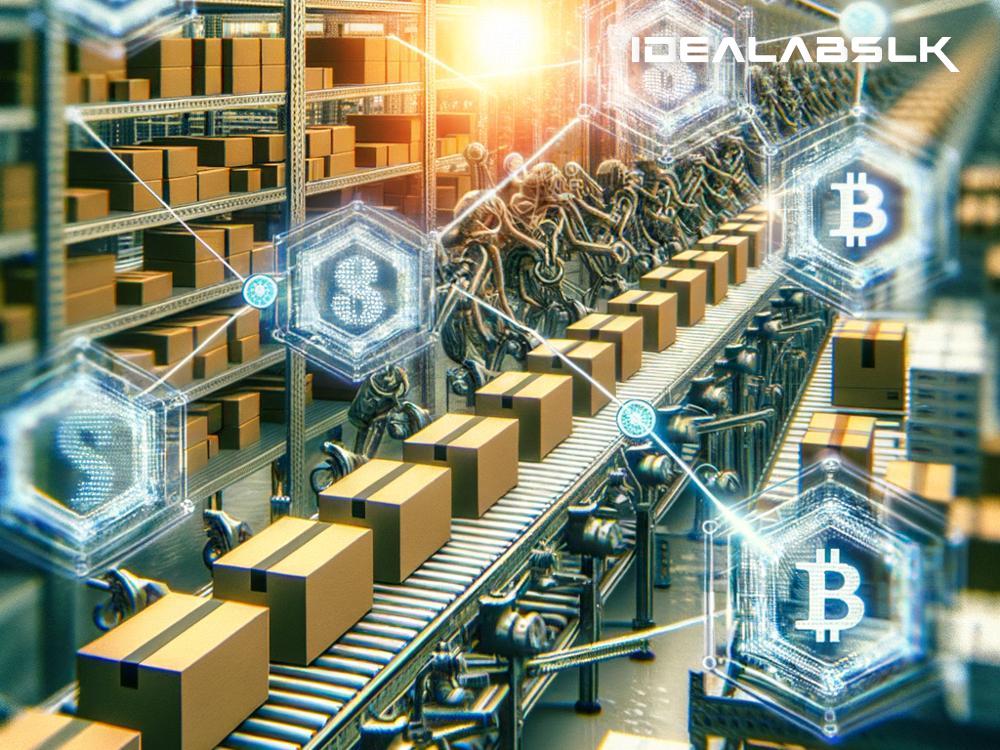How Blockchain Works in Pharmaceutical Supply Chains – A Simple Explanation
In recent years, the word 'blockchain' has buzzed its way through numerous industries, often tied with the financial sector thanks to its association with cryptocurrencies like Bitcoin. But beyond the realm of digital money, blockchain technology holds the promise of revolutionizing many other areas, one of which is the pharmaceutical supply chain. But how exactly does it do that? Let's break it down in simple English.
What is Blockchain?
Imagine a digital ledger that is open for everyone in a network to see and verify, yet it's extremely secure because once data is entered, it can’t be easily altered. That's the core of what a blockchain is. Picture it as a chain of blocks, where each block contains a list of transactions or records, and it’s linked to the previous block, forming a chain. This setup ensures that every participant in the network has the same information, creating a transparent and tamper-proof system.
Why is Blockchain Needed in Pharmaceutical Supply Chains?
The journey of a medicine from manufacturing to being in the hands of a patient is complex. It passes through numerous hands—including manufacturers, wholesalers, distributors, pharmacies, and sometimes, cross-border entities. This complexity opens up numerous risks including counterfeit drugs, theft, temperature control failures, and regulatory compliance issues.
Enhancing transparency, security, and accountability in this process is where blockchain steps in. Here's a look at how it's transforming the pharmaceutical supply chain:
-
Fighting Counterfeit Drugs: Counterfeit medication is a grave concern worldwide, posing risks to patient safety and costing the industry billions annually. With blockchain, each movement of a drug can be recorded in the digital ledger, from manufacturing to delivery to the patient. This traceability means that verifying the authenticity of a medicine becomes as easy as scanning a QR code, drastically reducing the chances of fake drugs infiltrating the supply chain.
-
Streamlining Recalls and Returns: Drug recalls can be a logistical nightmare due to the intricate distribution networks. However, the granular level of tracking offered by blockchain allows companies to quickly identify and recall the specific batch of drugs from any point in the supply chain, minimizing risks to public health and financial losses.
-
Compliance and Transparency: Regulatory bodies like the FDA in the United States enforce strict guidelines on drug manufacturing and distribution. Blockchain's immutable ledger means that all compliance-related data is reliably stored and easily accessible, making regulatory audits less stressful and proving compliance nearly effortless.
-
Temperature Control: Some medicines need to be stored at specific temperatures throughout their journey. Blockchain technology, combined with IoT (Internet of Things) devices, can monitor and record the temperature of these drugs in real-time. If the temperature deviates from the required range, stakeholders can be alerted instantly to take corrective action.
How Does it Work in Practice?
Let’s simplify the journey of a hypothetical drug, "MediCure", as it travels through the blockchain-enabled pharmaceutical supply chain:
-
Manufacturing: When MediCure is produced, a digital record is created on the blockchain. This record includes its manufacturing date, batch number, expiration date, and other relevant data.
-
Distribution: As MediCure moves from the manufacturer to distributors and pharmacies, each transfer is recorded on the blockchain. These records include timestamps, quantities, and the identities of the sender and receiver.
-
Sales to Patients: When MediCure is sold, the final transfer is recorded, completing its journey on the blockchain. This ensures that patients and healthcare providers can trace the medicine's path back to its origin.
-
In Case of a Recall: If a problem is discovered with MediCure, the manufacturer can use the blockchain to identify and notify all stakeholders who possess affected batches for immediate recall, ensuring patient safety.
The Future of Blockchain in Pharma
Incorporating blockchain into pharmaceutical supply chains doesn't just offer theoretical benefits; it has the potential to save lives by ensuring medication safety and authenticity. Though it's still early days, with challenges such as integration with existing systems and ensuring privacy, the promise of a safer, more transparent supply chain could usher in a new era of trust and efficiency in pharmaceuticals.
As this technology continues to evolve, so too will its applications, potentially extending beyond the supply chain to areas like clinical trials and patient data management, further transforming the pharmaceutical landscape.
In conclusion, blockchain stands as a beacon of hope for building a more secure, transparent, and efficient pharmaceutical supply chain, benefiting everyone from manufacturers to patients. By addressing critical issues like counterfeiting and compliance, blockchain technology may just be the prescription the pharma industry needs.

